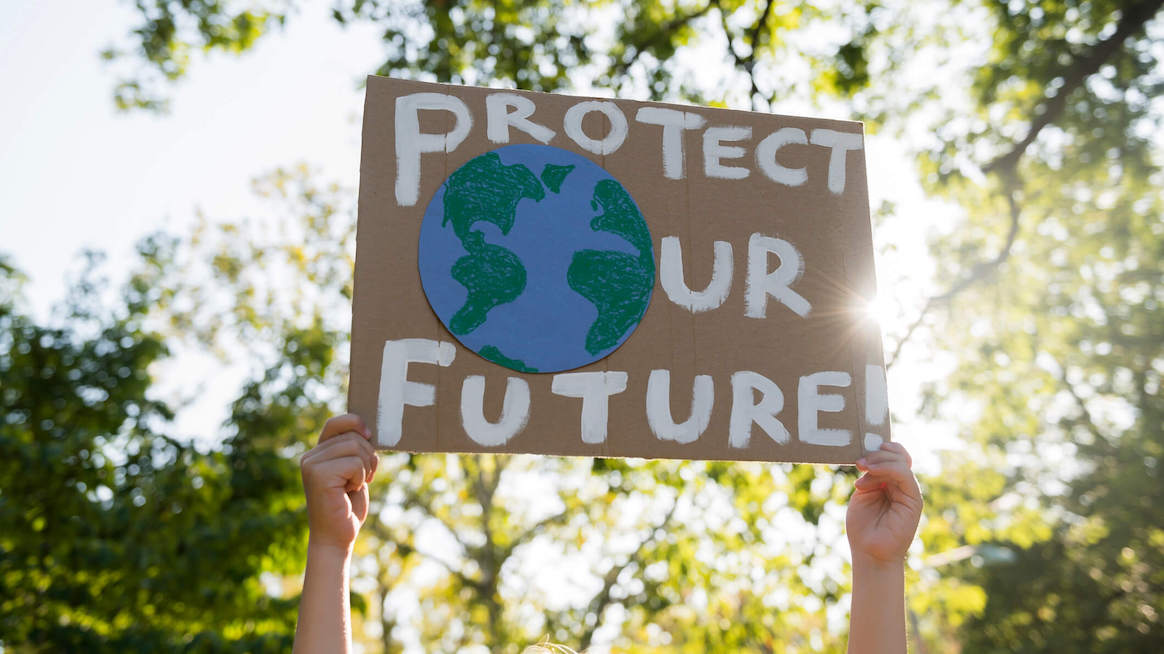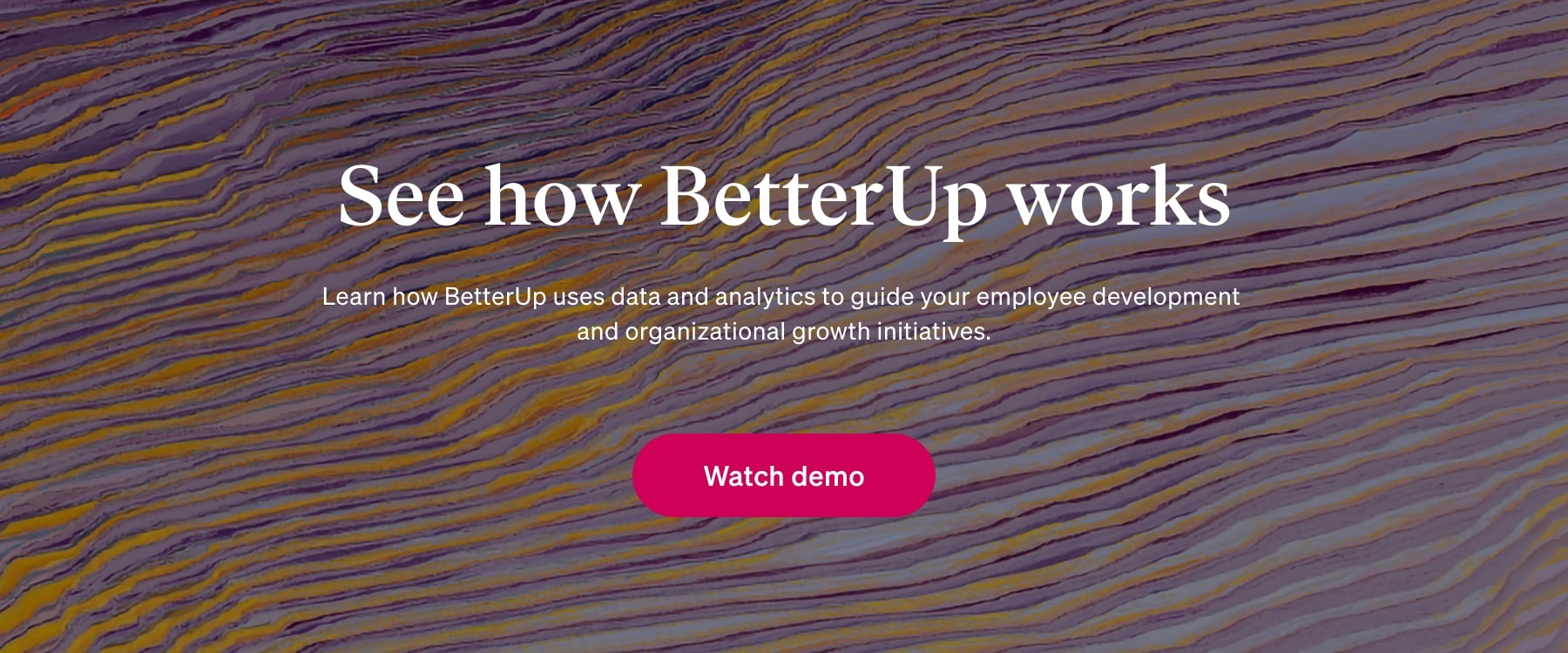-
For Business
For Business
Products
LeadBuild leaders that accelerate team performance and engagement.
Care™Drive productivity through sustained well-being and mental health for all employees with BetterUp Care™.
Solutions
Sales PerformanceTransform your business, starting with your sales leaders.
Diversity & InclusionFoster a culture of inclusion and belonging.
Customers
Case StudiesSee how innovative companies use BetterUp to build a thriving workforce.
- For Individuals
-
Resources
Resources
LibraryBest practices, research, and tools to fuel individual and business growth.
EventsView on-demand BetterUp events and learn about upcoming live discussions.
BlogThe latest insights and ideas for building a high-performing workplace.
ResearchInnovative research featured in peer-reviewed journals, press, and more.
- About
The threat posed by climate change underscores new need for mental fitness

Our world — and its issues — are more connected than we think. Some of the toughest problems society faces — like mental health, inequity, a pandemic, racial justice, and climate change — are like dominoes. When one falls, the others follow.
Corporations often influence these issues, whether intentionally or not. They also have a role to play in mitigating the domino effect.
Not that long ago, few organizations saw environmental, social, and governance (ESG) initiatives as foundational to business operations.
A decade ago, corporations might have had volunteer or donation matching programs on the fringe of their HR initiatives. Other companies were starting to formalize a diversity, equity, inclusion, and belonging (DEIB) role to bring equity to the workplace (and try to balance the scale in its sphere of influence). And still, others might have started to reduce greenhouse gas emissions and change the way they work to help achieve a low-carbon society. But the climate crisis wasn’t yet front-and-center for corporations, let alone the rest of the world.
ESG has evolved quickly, however, in the last few years. A slew of external events and environmental factors have forced the corporate world to rethink the relationship between ESG and core business operations. For many organizations, ESG is no longer a “do good” additive to the business. It’s a “must-have.”
Today, addressing climate change is a non-negotiable component of many companies' ESG initiatives. Even with increased attention, however, there’s an important impact of climate change that’s missing from ESG initiatives and often overlooked in the climate narrative: mental health.
A 2021 report by the American Psychological Association cites the urgency to look at mental health in the context of climate change. The report cites that over 75% of Americans are concerned about climate change — and about 25% say they’re alarmed, which is nearly double the percentage that was reported in 2017. The impact on mental health isn’t confined to eco-anxiety about the future. The aftermath of climate change events (like severe natural disasters) also has mental health impacts related to tangible threats to physical health and safety.
As a result, climate-related ESG needs to start encompassing more: both addressing the mental health impacts and building the mental fitness people need to be resilient, in the face of a range of extreme events and long-term change.
Mental health and climate change
Your team members, your employees, your customers — they're all feeling the effects of an increase in extreme weather patterns — like hurricanes and wildfires, droughts, and floods. Many suffered through extended periods of extreme heat this summer, including regions and cities without the infrastructure or practice to deal with it — the UK recorded its highest temperatures ever. In fact, July 2022 was officially the hottest month on Earth.
The toll on physical safety and health is immense. When we think about the mental health impacts of climate change, we see two distinct reactions.
First, there's the immediate, episodic reaction as a result of a severe climate event. For example, when a wildfire or flood displaces large populations from their homes people lose their homes, livelihoods, and businesses — everything they’ve worked to build — as well as schools, churches, and communities. Large climate events disrupt, disorient, and uproot people from their lives.
Physically, of course, there are safety concerns. But what we can’t see are the mental health effects that come along, too. For the survivors, there is trauma and shock, post-traumatic stress disorder, feelings of abandonment, grief, anxiety, and depression. Sometimes these are coming into a community where these mental health conditions are already prevalent.
But there’s also a slower-moving, more gradual impact of climate change on outlook, mood, and approach to the future. For example, there’s a broader fear, anxiety and depression of the aggregate, ongoing existential threat to our world.
People are worried about maintaining lifestyles, raising children and families, and making long-term plans for housing and livelihood amid the ongoing existential threat. The 2021 APA report (cited above) also found connections between rising temperatures and mood and anxiety disorders.
Changes in the environment also cause grief, disorientation, and poor work performance, according to the World Health Organization. For example, consider the hybrid or remote workers who have already been hit by extreme heat waves (especially in places where infrastructure isn’t in place to address high temperatures). Research shows it reduces cognitive function, negatively impacts sleep, and increases absenteeism. The result on the workforce? For Americans, extreme heat results in productivity loss estimated at $100 billion a year.
Yet when we look at how mental health factors into climate change strategies, it’s noticeably absent. In a 2021 survey by the World Health Organization, only 9 countries have made mental health support part of their plans for national health and climate change.
The parallels between COVID-19 and climate change
We can’t afford to overlook mental health in the climate crisis. From the pandemic, we know that mental health plays a role in how effective responses to crises are and well people are able to recover and move forward. It also highlighted how uneven the response and recovery are across communities.
The pandemic exposed long-existing inequities in the foundation of our society. These cracks showed the disproportionate impact that communities of color and those of lower socioeconomic status shouldered. Not only were Black and LatinX people four to nine times more likely to contract COVID-19, but the access to quality healthcare and associated disparities were also more prevalent than ever.
When we think about the mental health component of this narrative, it’s massive. COVID-19 sparked or exacerbated widespread mental health issues, often disproportionately impacting the most vulnerable communities.
According to a March 2022 report by the World Health Organization, the pandemic triggered a 25% increase in the prevalence of anxiety and depression worldwide. Young people and women bore the brunt. According to a report in the Translational Behavioral Medicine, the mental health impact on young adults was most severe with anxiety and depression rates six times higher than in 2019 (between 61-65%).
When we look at the mental health impacts of COVID-19, or the climate crisis, on the workforce, we need a different lens. We know that 55% of people are already languishing — they’re less adaptable, less able to respond effectively to sudden change, less able to recover and rebuild, and more vulnerable to sliding down the mental health spectrum into more severe conditions like anxiety and depression.

With climate-related changes looming, the majority of the workforce needs support, but the research suggests most people don’t need clinical care. Companies can help their workforces, and communities, strengthen mental health, and build core psychological resources that buffer against the damaging effects of crises and disruptions through proactive mental fitness practices.
Proactive mental fitness support can help individuals develop coping skills, resiliency, and behavior changes that help protect against worsened mental health. So when COVID-19 — or climate change — knocks down our well-being, we’re better prepared to get back up again.
Simply put: Our world is poised to see parallel impacts of the climate crisis as we did with COVID-19. The early signs of the mental health impact of climate change are already here. We can’t afford to ignore the mental health needs.
What we can control — and how we look to the future with optimism
With climate change more visible in our everyday lives, it’s almost certain that some of your employees are worried about it. It’s also likely that your people have already started to experience impacts, whether that’s evacuating their home due to a wildfire or attempting to escape the extreme heat.
So, what can we do about it?
Building mental fitness isn’t going to solve climate change. But it will help equip people with the skills and capabilities they need to better manage their emotions, mental health, and well-being under stress in a time where we need resilience and adaptability more than ever.
If we’ve learned anything from these last few years, it’s that change is here to stay — in the workforce, in our personal lives, and on our planet.
So, how do you proactively cushion the mental health impacts of these external environmental factors? What if workforces could provide employees with ways to buffer the experience of some of the tough problems we’re all bound to face? What if we could hone in on our sense of agency and future-mindedness to help people better navigate fast-moving change?
Strengthen your sense of control. Every human being operates with some sense of what controls their outcomes in life and why things happen the way they do. This "locus of control" affects the things they find stressful, their psychological and physiological experience of stress, and the strategies they use to help cope with or mitigate stress levels.
So while it might feel like climate change has us doomed, we can hone in on our locus of control to manage what we can in our own sphere of influence.
Practice future-mindedness. BetterUp Labs studied future-mindedness, the idea of looking ahead to the future with a sense of pragmatism and optimism. First, future-mindedness orients us toward opportunity instead of threat. When we look at our problems as opportunities, it improves our ability to act effectively. It also helps give us a clearer picture of what we can (and can’t) control.
But it also reduces the negative aspect of surprise. When we’re caught off-guard, we often react with our emotions. We might thrash around or deny what’s happening, even if we know change is inevitable.
Build resilience. It's time to be more proactive about mental health. To build resilience, we need to invest in mental fitness, for ourselves and the people in our organizations and communities. The skills and capabilities to cushion the impact — whether that’s managing an extremely stressful and traumatic event, thinking imaginatively about contingency plans, or dealing with everyday eco-anxiety — can be learned and developed.
Yes, our global problems are big ones. And no, they’re not going away anytime soon. So, when we really think about building a sustainable future for all, it starts with being proactive about the change that is to come.
Embedding climate-related ESG practices into business operations isn’t just good for the world (and for business). Being proactive about people’s mental health, resilience, and readiness in response to climate change is critical. We need to build these capabilities to sustain and adapt our businesses and communities for a future we can’t really predict.
As for the ways organizations are approaching ESG initiatives to solve big problems like climate change, we’re hopeful. Companies aren’t just businesses — they’re made up of people who care deeply about the impact they make on our world. Together, we all hold a responsibility to better ourselves, our communities, and the world around us.
Madeline Miles
Madeline is a writer, communicator, and storyteller who is passionate about using words to help drive positive change. She holds a bachelor's in English Creative Writing and Communication Studies and lives in Denver, Colorado. In her spare time, she's usually somewhere outside (preferably in the mountains) — and enjoys poetry and fiction.





